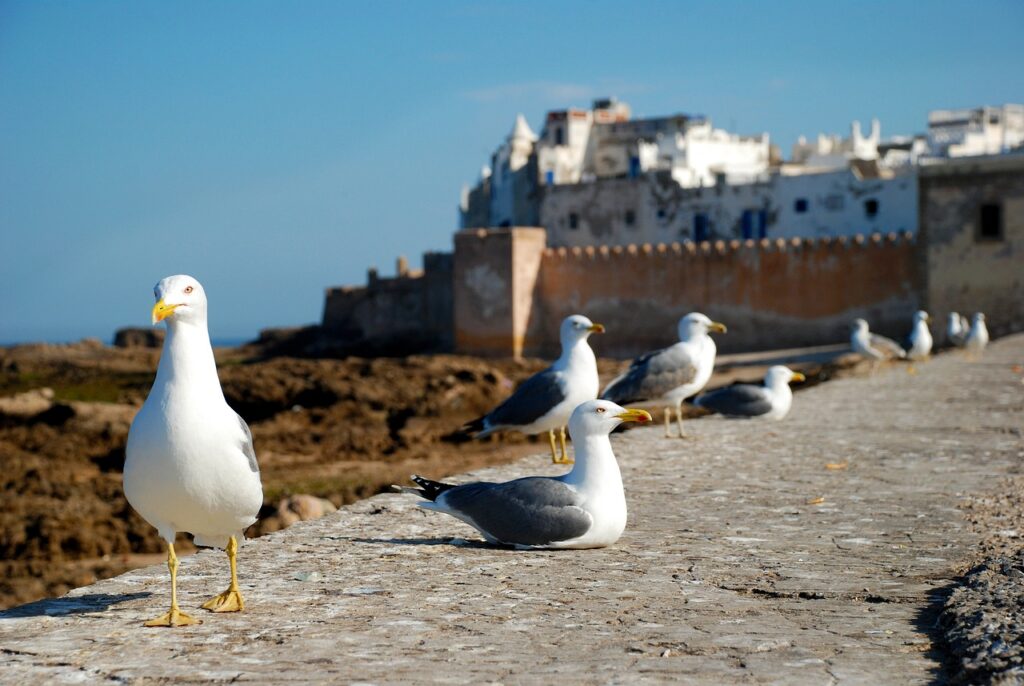Introduction
Essaouira, often referred to as the “Wind City of Africa,” is a charming, ancient port city on the Atlantic coast of Morocco. Its rich history dates back to prehistoric, with the city serving as an important trading hub throughout the centuries. Located on the western coast of Morocco, Essaouira enjoys a mild climate throughout the year, with temperatures ranging from 15°C to 25°C. The city’s unique blend of Berber Arab, and French influences is evident in its architecture, culture, and cuisine.
Brief history of Essaouira
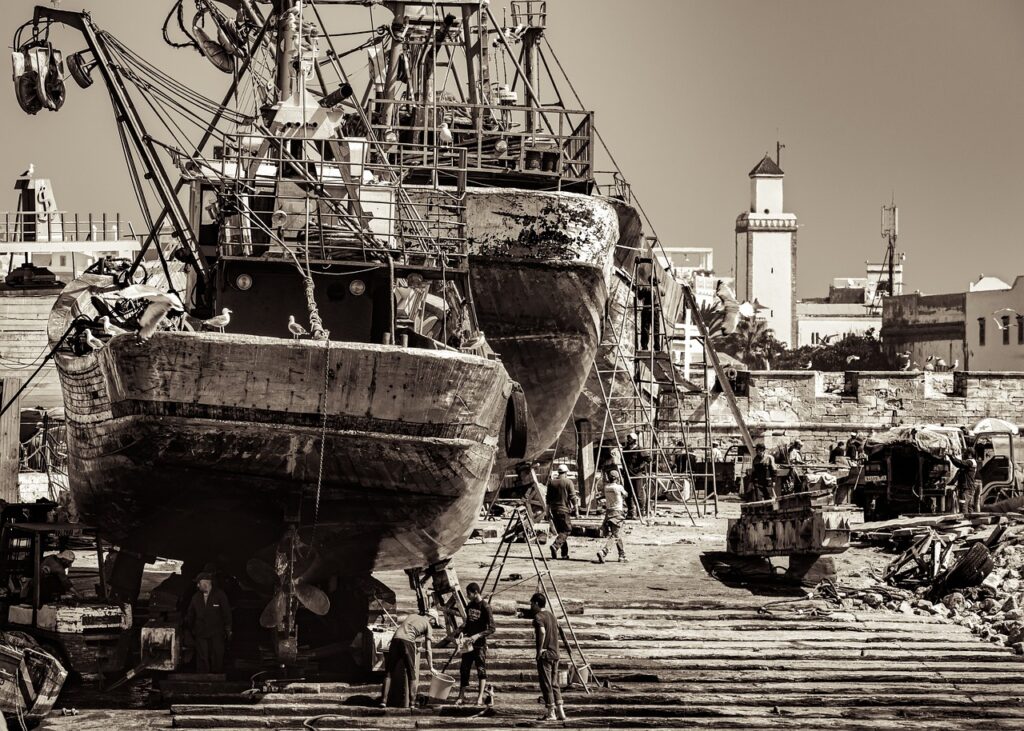
The city of Essaouira has been inhabited since prehistoric times, with archaeological evidence suggesting human presence as early as the Neolithic period. Over the centuries, Essaouira has been occupied by the Phoenicians, Romans, and Portuguese, each leaving their mark on the city’s architecture and culture. The city’s modern name, Essaouira, was given by Sultan Sidi Mohammed Ben Abdellah in the 18th century, who built the city as a major port for trade with Europe and the rest of the world.
Geographical location and climate
Essaouira is located on the Atlantic coast of Morocco, approximately midway between the cities of Casablanca and Agadir. Its coastal location gives it a mild, Mediterranean climate, with warm summers and cool, wet winters. The city is also known for its strong winds, which make it a popular destination for wind and kite surfers.
Why Visit Essaouira
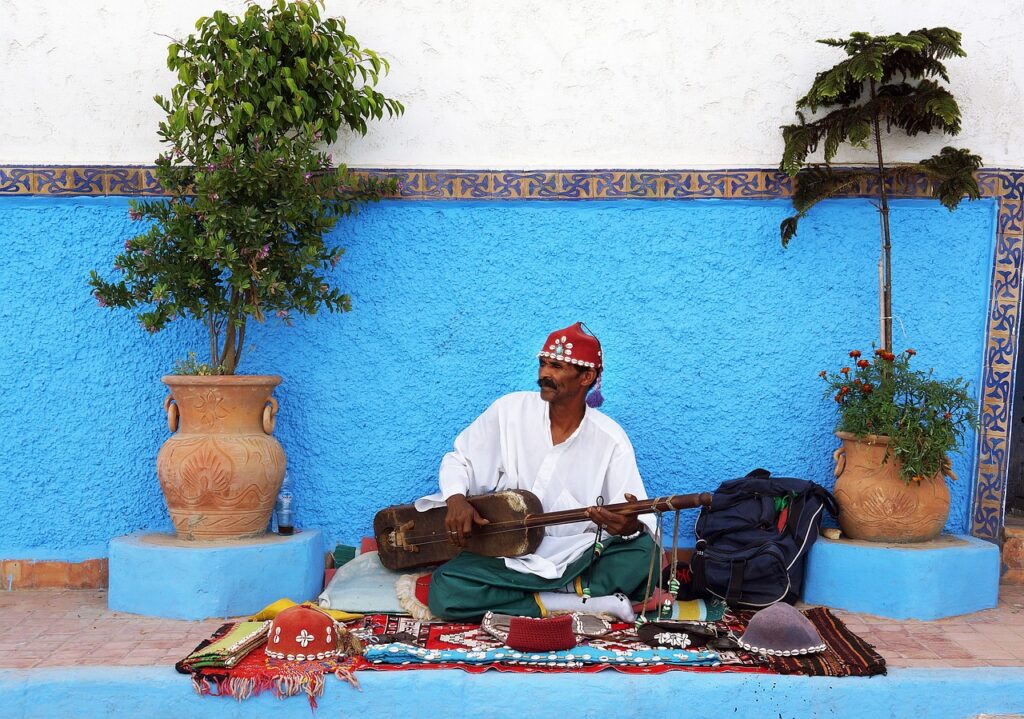
Essaouira offers a unique blend of history, culture, and natural beauty. Its well-preserved medina (old town) is a UNESCO World Heritage Site, filled with narrow winding streets, colorful markets, and stunning architecture. The city’s cultural significance is further enhanced by its vibrant arts scene, which includes an annual music festival that attracts artists and visitors from around the world.
Unique features of Essaouira
One of the most distinctive features of Essaouira is its fortified medina, with its high walls and bastions offering stunning views of the Atlantic Ocean. The city is also known for its beautiful beaches, perfect for sunbathing, swimming, and water sports. Other unique features include the city’s bustling fish market, where you can buy fresh seafood and have it cooked on the spot, and the Thuya wood workshops, where skilled artisans create beautiful, intricate pieces of furniture and decorative items.
Cultural significance
Essaouira plays a significant role in Morocco’s cultural landscape. The city is a hub for artists and musicians, with numerous galleries showcasing local and international art, and music venues offering a diverse range of performances. The annual Gnaoua and World Music Festival, held in Essaouira, is a major cultural event that celebrates the mystical Gnaoua music, a rich blend of African, Berber, and Arabic spiritual songs and rhythms.
Best Time to Visit Essaouira
Essaouira can be visited at any time of the year, thanks to its mild climate. However, the best time to visit depends on what you want to do. For beach activities and water sports, the summer months of July and August are ideal. For cultural events and festivals, the spring and autumn months are the best.
Seasons and weather conditions
Essaouira has a Mediterranean climate, with warm, dry summers and mild, wet winters. The average temperature in summer is around 25°C, while in winter it drops to around 15°C. The city is known for its strong winds, particularly in the spring and summer months, which can make some outdoor activities challenging.
Festivals and events
Essaouira hosts several festivals and events throughout the year. One of the most popular is the Gnaoua and World Music Festival, which takes place in June and features performances by local and international artists. Other events include the Alizés Classical Music Festival in April, the Atlantic Andalusia Festival in November, and the Essaouira Beach Festival in August.
How to Get to Essaouira
Essaouira is easily accessible by air, road, and sea. The city’s airport, Essaouira-Mogador Airport, offers regular flights to and from several European cities. There are also direct buses from Marrakech, Agadir, and other major Moroccan cities. Alternatively, you can take a ferry from Spain or France to Tangier, and then travel by road to Essaouira.
By air
Essaouira-Mogador Airport is located about 15 km from the city center and offers regular flights to and from several European cities, including Paris, London, and Brussels. Taxis and car rental services are available at the airport for travel to the city.
By road
Essaouira is well connected by road to other major Moroccan cities. The journey from Marrakech to Essaouira takes about 2.5 hours by car or bus, while from Agadir it takes about 3 hours. Buses are a convenient and affordable option, with several companies offering regular services, including CTM and Supratours.
By sea
While there are no direct ferries to Essaouira, you can take a ferry to Tangier from Spain or France, and then travel by road to Essaouira. The journey from Tangier to Essaouira takes about 6 hours by car or bus.
Walking and cycling routes
Essaouira’s compact size and pedestrian-friendly streets make it ideal for exploring on foot or by bicycle. The city’s medina, in particular, is best explored on foot, as it is closed to motorized traffic. There are also several cycling routes in and around the city, offering stunning views of the coast and the surrounding countryside.
Top Attractions in Essaouira
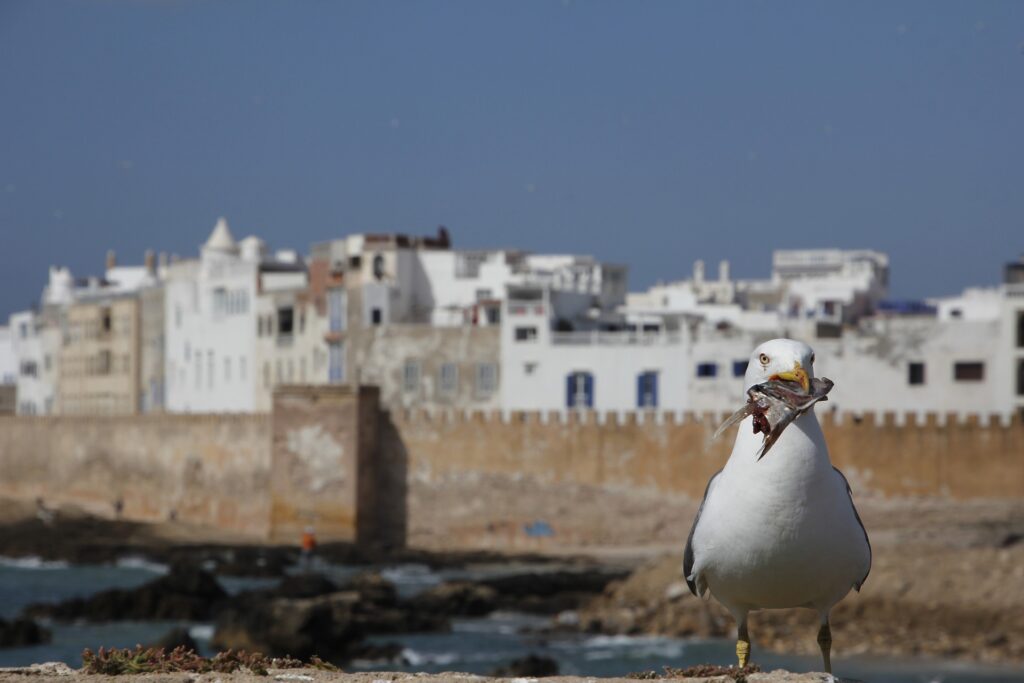
Essaouira offers a wealth of attractions for visitors, from historical sites and beautiful beaches to vibrant art and music venues. Whether you’re a history buff, a nature lover, or a culture vulture, you’ll find plenty to see and do in this charming coastal city.
Historical sites
Essaouira’s medina is a UNESCO World Heritage Site and a must-visit for any traveler. Its narrow, winding streets are lined with beautiful old buildings, bustling markets, and traditional workshops. Other historical sites include the Portuguese Fortifications, the Sidi Mohammed Ben Abdellah Museum, and the Mellah, the old Jewish quarter.
Beaches and natural attractions
Essaouira’s long, sandy beach is perfect for sunbathing, swimming, and water sports. The city is also known for its strong winds, making it a popular destination for wind and kite surfing. For nature lovers, the nearby Sous-Massa National Park offers bird watching opportunities, with over 275 species of birds.
Art and music venues
Essaouira is a hub for artists and musicians, with numerous galleries and music venues scattered throughout the city. The city’s annual Gnaoua and World Music Festival is a major cultural event, attracting artists and visitors from around the world. Other notable venues include the Alliance Franco-Marocaine, which hosts regular exhibitions and concerts, and the Essaouira Art Gallery, which showcases contemporary Moroccan art.
Culinary Experiences in Essaouira
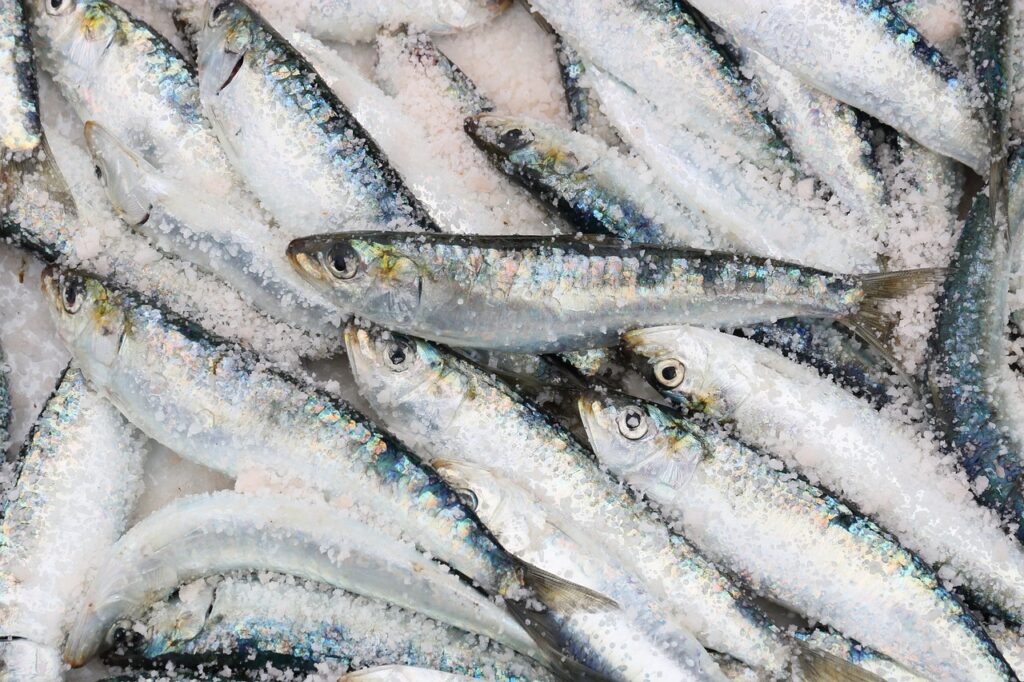
Essaouira offers a rich culinary scene, with a wide variety of dining options to suit all tastes and budgets. From traditional Moroccan cuisine to fresh seafood, there’s something for everyone in this coastal city.
Traditional Moroccan cuisine
Moroccan cuisine is known for its rich flavors and diverse ingredients, and Essaouira is no exception. Local specialties include tagine, a slow-cooked stew made with meat, vegetables, and spices, and couscous, a traditional Berber dish made with semolina and served with meat and vegetables. Other must-try dishes include pastilla, a sweet and savory pastry filled with meat and nuts, and harira, a hearty soup often served during Ramadan.
Seafood specialities
Thanks to its coastal location, Essaouira is a paradise for seafood lovers. The city’s bustling fish market offers a wide variety of fresh seafood, from fish and shrimp to lobster and oysters. Many restaurants in the city offer seafood dishes, with grilled sardines being a local favorite.
Best restaurants and cafes
Essaouira boasts a wide range of restaurants and cafes, offering everything from traditional Moroccan cuisine to international dishes. Some of the best restaurants in the city include Elizir, a stylish eatery known for its creative Mediterranean dishes, and Chez Sam, a popular seafood restaurant with stunning views of the port. For a more casual experience, head to one of the city’s many cafes, where you can enjoy a cup of Moroccan mint tea and watch the world go by.
Accommodation in Essaouira
Essaouira offers a wide range of accommodation options to suit all budgets and preferences. From luxury hotels and traditional riads to budget hostels, you’re sure to find the perfect place to stay in this charming coastal city.
Luxury hotels
For those seeking a touch of luxury, Essaouira offers several high-end hotels with top-notch amenities and services. These include the Sofitel Essaouira Mogador Golf & Spa, a stylish resort with a golf course and a spa, and the Heure Bleue Palais, a luxury hotel located in a historic building in the medina.
Budget hostels
For budget travelers, Essaouira offers several affordable hostels and guesthouses. These include the Atlantic Hostel, a popular backpacker’s hostel with a friendly atmosphere and a rooftop terrace, and the Surf and Chill Hostel, which offers surf lessons and equipment rental.
Traditional Riads
For a truly Moroccan experience, consider staying in a traditional riad. These are historic houses or palaces that have been converted into guesthouses, offering a unique blend of traditional architecture and modern comforts. Some of the best riads in Essaouira include Riad Mimouna, a charming guesthouse with stunning sea views, and Riad Dar Maya, a luxury riad with a rooftop terrace and a hot tub.
Etiquette and Local Customs
When visiting Essaouira, it is important to be mindful of local customs and etiquette to ensure a respectful and enjoyable experience.
Social norms and behaviors
Moroccans are known for their warm hospitality and friendliness. It is customary to greet people with a handshake and a polite greeting, such as “Salam alaikum” (peace be upon you). It is also considered polite to accept offers of tea or coffee when visiting someone’s home or shop. When entering a mosque, it is important to remove your shoes and dress modestly. It is also customary to ask for permission before taking photographs of people, especially in more conservative areas.
Language basics
The official languages of Morocco are Arabic and Amazigh (Berber). However, many Moroccans also speak French, especially in urban areas and tourist destinations like Essaouira. English is also spoken by some locals, particularly those working in the tourism industry. Learning a few basic Arabic phrases, such as greetings and thank you, can go a long way in showing respect and connecting with the locals.
Conclusion: Making the Most of Your Essaouira Visit
Visiting Essaouira is a truly enriching experience that offers a unique blend of history, culture, and natural beauty. By planning your itinerary carefully, embracing the local culture, and taking advantage of the city’s attractions and culinary delights, you can make the most of your visit to this charming coastal city. Whether you’re exploring the narrow streets of the medina, relaxing on the beautiful beaches, or immersing yourself in the vibrant arts scene, Essaouira is sure to leave you with unforgettable
